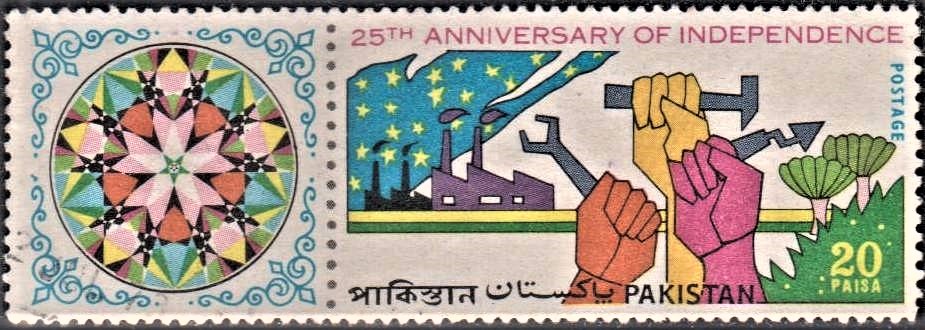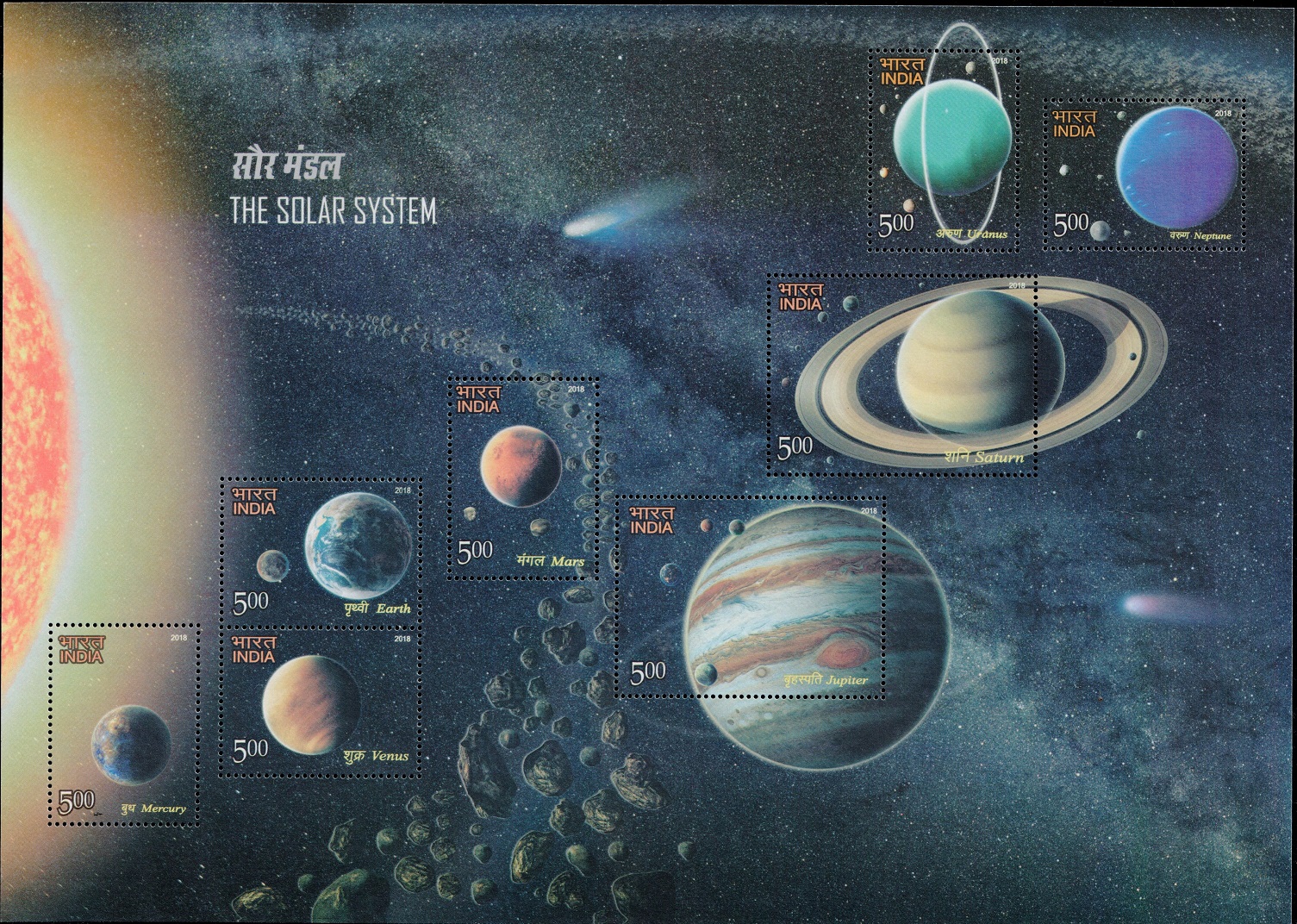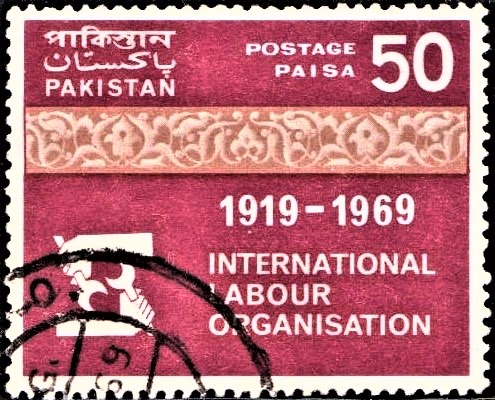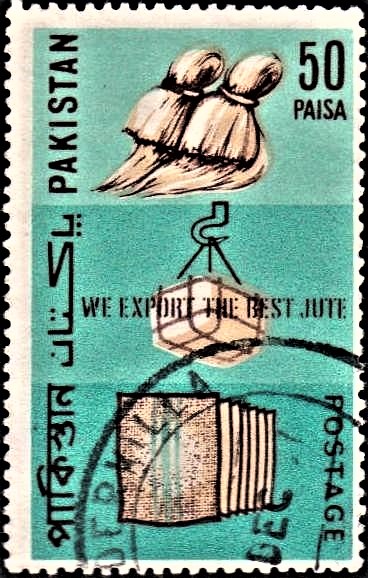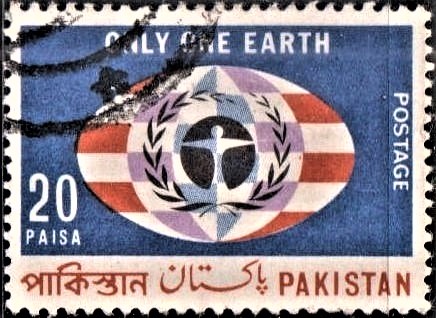
Pakistan on U.N. Conference on Human Environment
A commemorative postage stamp on the United Nations Conference on Human Environment, Stockholm, Sweden :
 Issued by Pakistan
Issued by Pakistan
Issued on Jun 5, 1972
Issued for : The General Assembly of the United Nations decided to convene a United Nations Conference on the Human Environment, to be held in Stockholm, on June 5-16, 1972. To mark this occasion, the Pakistan Post Office is issuing a Commemorative Postage Stamp of 20-Paisa denomination on 5th June, 1972.
Design : The format of the stamp is horizontal. The design is based on the caption ‘Only One Earth‘; placed on the top in reverse against an ultramarine background. The official Conference Emblem in black selected for the “United Nations Conference on Human Environment” is placed in the centre of the world, symbolically represented by an ellipse, comprising of different colours, orange, purple and pale blue. The word ‘Postage’ at the right side of the stamp and the denomination “20 Paisa” at the left bottom side are in reverse. The word ‘Pakistan‘ in Bengali, Urdu and English appearing on white strip at the bottom of the stamp is in orange colour.
Type : Stamp, Postal Used
Denomination : 20 Paisa
Colour : Ultramarine blue, chrome orange, purple and black
Size of stamp : 26 x 36 m.m.
Size of Print : 23 x 33 m.m.
Perforation gauge : 12½ x 14 (c)
Quantity printed : 10,00,000
Number of Stamps in each sheet : 50
Process of Printing : Litho offset
Printers : The Pakistan Security Printing Corporation Ltd., Karachi
About :
- Looking back from his new vantage-point in outer space, man sees his earth as a tiny ball floating in the void. The oceans, the continents, the clouds that marks its precious atmosphere are visible; national boundaries cannot be seen. “Like it or not, we are all travelling together on a common planet,“ the then Secretary-General U Thant had said, “We have no rational alternative but to work together to make it an environment in which we and our children can live full and peaceful lives, and that it has become clear that we all live in one biosphere within which space and resources, though vast, are limited.“
- This was not the first time that such warnings had been sounded in the administration; and science and technology.
- UNESCO : The United Nations Educational, Scientific and Cultural Organization has carried out environmental studies since its inception, and a separate ecology and conservation section was set up in 1961.
- IMCO : The Inter-Governmental Maritime Consultative Organization has a direct responsibility for placing restraints on contamination of the sea by ships and other equipment.
- FAO : Many activities of the Food and Agriculture Organization have a direct bearing on conservation of soil, plants and animals and marine life.
- WHO : The World Health Organization has set up international reference centres to assist Governments in identifying, measuring and evaluating air and water pollutants, and to aid in solving waste disposal problems through such methods for reduction of solid wastes.
- WMO : The World Meteorological Organization’s World Weather Watch, initiated by the 1963 World Meteorological Congress, is a far-reaching programme for development of a world weather service integrating national and international activities, including the use of observation satellites.
- IAEA : The International Atomic Energy Agency has a continuing programme to combat radioactive pollution caused by nuclear power plants and other peaceful uses of atomic energy.
- ILO : The International Labour Organization – which is seeking to protect workers against pollution in the working environment – recently has undertaken projects on atmospheric control in mining operations.
- ICAO : The International Civil Aviation Organization – which has been studying “Sonic Boom” from supersonic aircraft and airport noise – has made progress in establishing standard procedures for measuring aircraft noise.
- The past, present and planned United Nations activities to preserve life on earth have demonstrated that all nations have a common interest in defending man’s environment – an interest that bridges geographical or ideological divisions. In the past, common property resources such as air, water and open space were considered resources owned by no one; today they tend to be treated more and more as resources owned equally by all – and their uses are increasingly subject to standards and prohibitions by Governments at local, national and international levels.
- Issued by The Director – General, Pakistan Post Office, Karachi.


